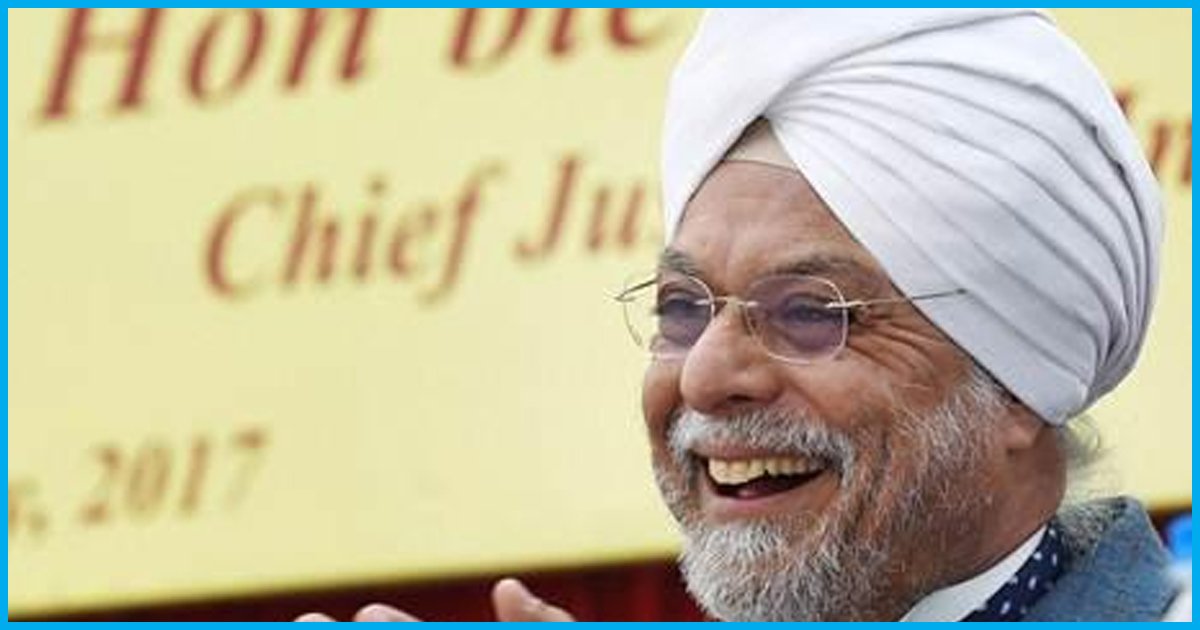
Right To Privacy, Triple Talaq & Karnan: CJI Khehar's Short Tenure Saw Many Landmark Judgements
28 Aug 2017 10:43 AM GMT
Editor : Sudhanva Shetty Shetty
Writer, coffee-addict, likes folk music & long walks in the rain. Firmly believes that there's nothing more important in a democracy than a well-informed electorate.
In a short term of only 240 days as the holder of the country’s highest judicial office, Justice Khehar led the Supreme Court through three landmark verdicts. These included the tumultuous controversy surrounding Justice Karnan’s allegations, never before seen in India’s judicial history. The other two were verdicts possess great potential to shape policy and precedent in coming years on issues such as secularism and civil rights – these were the verdicts of triple talaq and the right to privacy.
Khehar’s journey
Jagdish Singh Khehar was born on August 28, 1958. He became the first Chief Justice of India (CJI) from the Sikh community when he succeeded CJI Thakur on January 4, 2017.
Khehar received his LLB and LLM from Punjab University, Chandigarh, securing the first position in the university in LLM examination.
He became a judge of the Punjab and Haryana High Court at Chandigarh on 8 February, 1999, Khehar. He had practised before the same High Court as well as the Himachal Pradesh High Court and the Supreme Court.
He was twice appointed as the acting chief justice of Punjab and Haryana High Court from August 2, 2008 and again from November 17, 2009.
He was elevated as Chief Justice of Uttarakhand High Court on November 29, 2009. Later, he was transferred as Chief Justice of Karnataka High Court.
He was elevated as judge of the Supreme Court on 13 September, 2011.
Justice Karnan case
The curious case of Justice CS Karnan shocked the country and alarmed the judicial community. It has involved several firsts in the history of India’s powerful courts – including the SC issuing contempt charges against a sitting judge, a judge ordering a CBI investigation of the Chief Justice of India, and the SC sentencing a judge to prison. The saga denigrated to Karnan becoming the first HC judge to retire while absconding arrest and him being arrested by the West Bengal police from Tamil Nadu on June 20.
Throughout this trespass onto “virgin territory”, Khehar guided the apex court.
Read more: Justice Karnan Versus The Supreme Court: All You Need To Know
Instant Triple Talaq
On August 22, in a historic verdict, the Supreme Court declared Triple Talaq as unconstitutional (verdict can be red here).
However, saying the practice cannot be done away with “hastily”, the Court gave the government six months’ time to draft a law on the matter.
In the meantime, Triple Talaq will be essentially suspended. The practice has been outlawed, voided, nullified.
Triple talaq – or, in particular, instant Triple Talaq – is the controversial Muslim divorce law that allows men to leave their wives immediately by uttering the word “talaq” (divorce) thrice.
A panel of five judges said that triple talaq “is not integral to religious practice and violates constitutional morality.”
Five judges of different faiths – Chief Justice Jagdish Singh Khehar, Justice Kurian Joseph, Justice Rohinton Fali Nariman, Justice Uday Umesh Lalit and Justice S Abdul Nazeer – heard the case over five days from May 12 to May 18.
The court called triple talaq “bad in law” and said: “We hope the legislature will consider and take into account Muslim Personal Law while making legislation. All parties must keep their politics away and decide this.”
Read more: In A Historic Moment For Indian Secularism, SC Declares Instant Triple Talaq Unconstitutional
Right to privacy
The elevation of privacy as a fundamental right under Article 21 of the Constitution will be remembered as a watershed moment for Indian democracy. A bench of nine judges including CJI Khehar unanimously held (9-0) that privacy is a fundamental right under the Indian Constitution.
The apex court overruled its two earlier judgements (M P Sharma verdict of 1950 and that of Kharak Singh of 1960) that right to privacy is not protected under the Constitution. The SC observed that Right to Privacy is intrinsic under Article 21 of the Constitution and other freedoms guaranteed by Part III. It will come under right to life and liberty, ruled Supreme Court.
The verdict is crucial for Indian democracy – not only because privacy has become a primary debate in the digital age but also because of the intrinsic links between privacy and the government’s push to increase the mandate of Aadhaar and UIDAI.
Read more: Privacy Is A Fundamental Right Under The Indian Constitution: Supreme Court
 All section
All section













